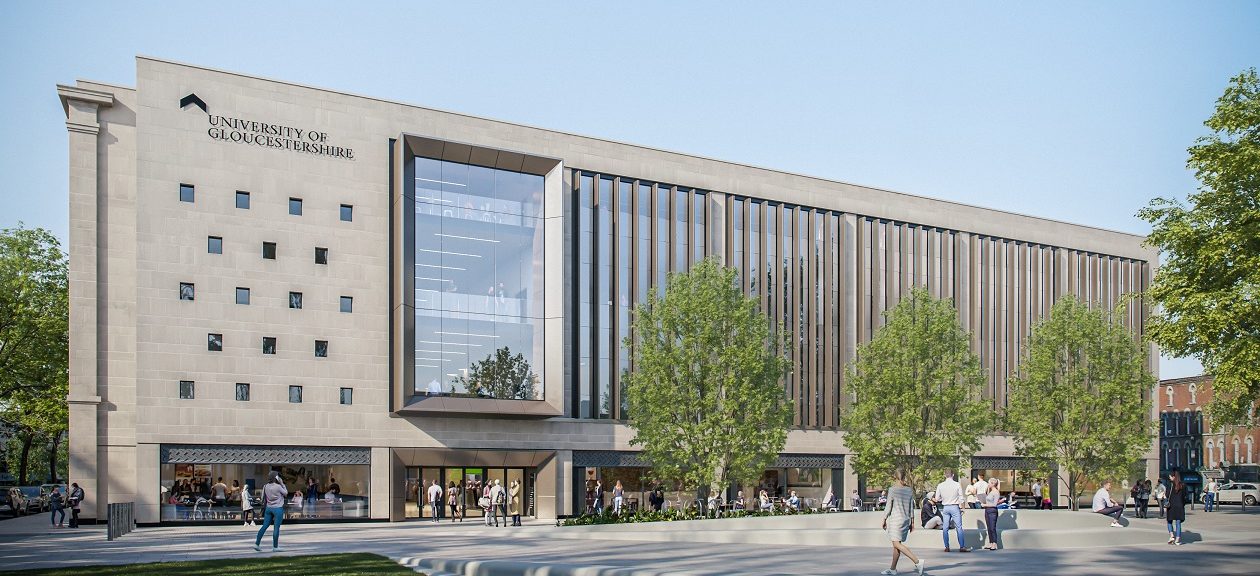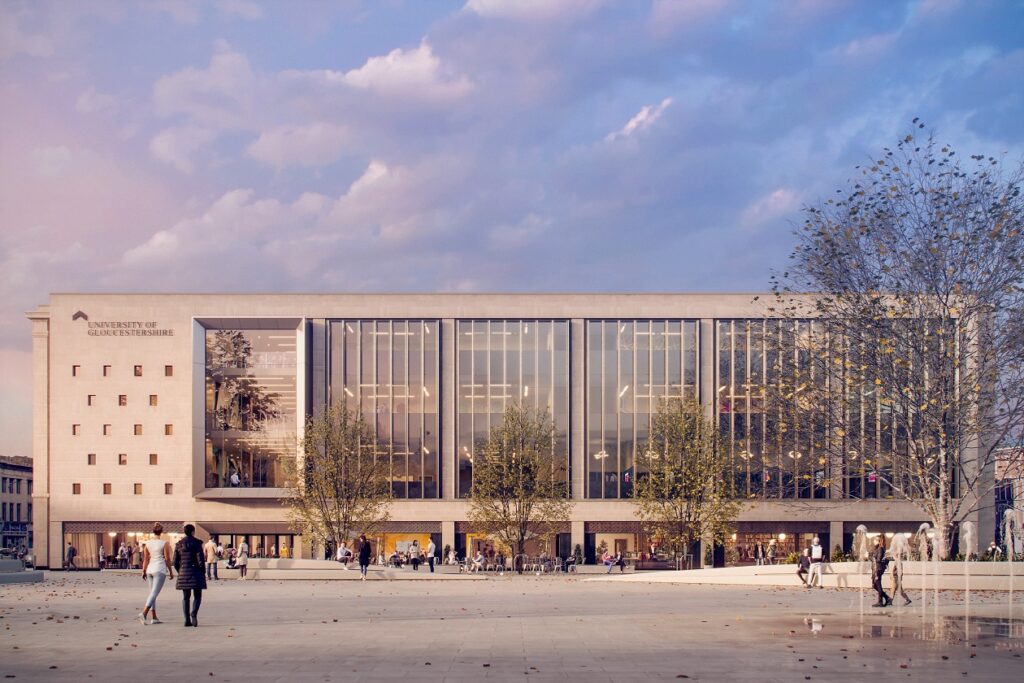University of Gloucestershire is one of the first universities in the UK to secure funding linked to our commitment to Environmental, Social and Governance (ESG) goals.
The University has secured £29million in ESG linked loans from Barclays that will contribute to supporting our ambitious City Campus development and ESG goals:
- to recruit a higher proportion of UK-domiciled young BAME students
- to widen access, engagement and participation for students from deprived areas
- to reduce gas and electricity carbon emissions as part of our commitment to be Net Zero by 2030
The ESG monitoring metrics agreed by the University and Barclays will be annually assessed to ensure the University is making progress in fulfilling its ambitious targets.
The development of the former Debenhams building into an inclusive, diverse and modern University teaching and learning environment, City Campus, is part of significant plans to regenerate and revitalise Gloucester city centre.
As well as training the region’s future nurses and teachers, it is estimated that over its lifetime, City Campus will add over £300 million of direct and indirect value to the county’s economy, as well as more than 4,000 jobs.
As a market leader in sustainability within the Higher Education, we’re always driving forward our ambition to reach Net Zero by 2030. In being prepared to sign up to the ESG linked financing, we’ve shown that as an organisation, we’re willing to put our money where our mouth is and that we will deliver on our commitments to decarbonisation.
As part of our decarbonisation drive, we have also secured funding from the Department for Business, Energy and Industrial Strategy (BEIS) as part of its Public Sector Decarbonisation Scheme, delivered by Salix. The scheme aims to put the public sector at the forefront of decarbonising buildings in the UK.
We’ve secured a funding award of £3.3million from the scheme will allow for significant heat decarbonisation measures at City Campus.
We are delighted to see such incredible progress being made at the University and how this work is decarbonising the heating systems, reducing energy consumption across the campuses. It is part of the University’s bigger picture and will make a major contribution in meeting its net zero goals.


